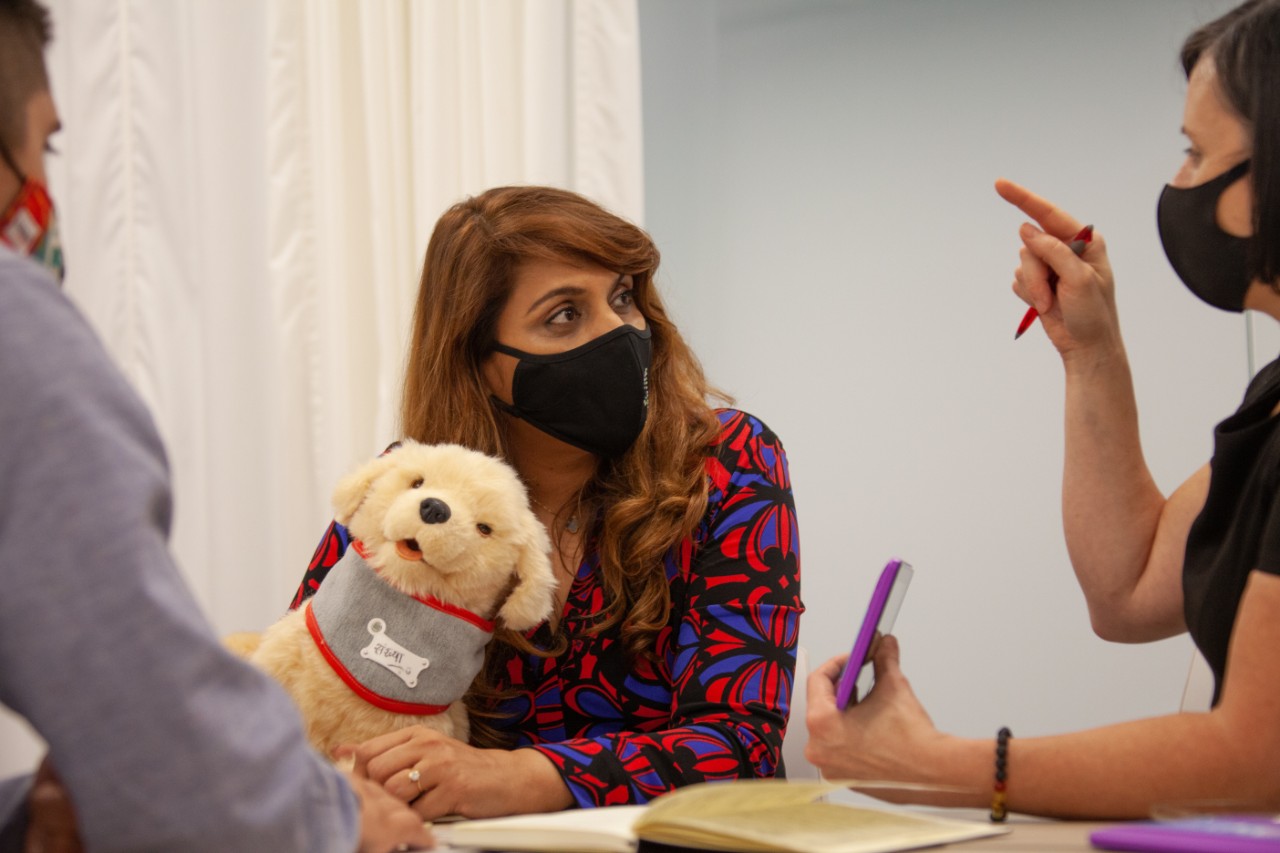
Spectrum News: Study looks at art therapy, pet robots' effect on well-being
Patient, multidisciplinary UC researchers collaborate on pilot study
University of Cincinnati researchers from across disciplines are collaborating on a pilot study researching how a self-guided art therapy app and robotic pets affect the mood of patients.
The study is led by Soma Sengupta, MD, associate professor in neurology and the Harold C. Schott Endowed Chair of Molecular Therapeutics (Neurosurgery); Claudia Rebola, PhD, associate dean for research, associate professor and director of the new Center for DAAP Research and Innovation (CDRI) on Health and Wellbeing in the College of Design, Architecture, Art, and Planning; and Meera Rastogi, a psychologist, art therapist and program coordinator for the pre-art therapy certificate program.
The research specifically targets patients with vestibular schwannoma, or acoustic neuromas, which are benign tumors on nerves leading from the inner ear to the brain. Sengupta said these patients often experience some form of hearing loss.
Sankhya Jejurikar, a vestibular schwannoma patient who experiences single-sided deafness and professional artist, worked with the researchers to make sure the study was fine-tuned to someone with her diagnosis.
Watch the Spectrum News story.
Featured photo at top: Sankhya Jejurikar discusses the study with UC researchers. Photo/Ravenna Rutledge/University of Cincinnati
Related Stories
Beyond the Classroom: Perspectives on Long-Term Study Abroad
November 21, 2024
More than 1300 UC students studied abroad in 2023-24. Most students tend to sway towards the most popular option of faculty-led programs, because of its shorter duration and high level of faculty support. But some UC students strike out on their own, choosing to fly solo for a semester to a year with long-term study abroad programs.
Family honors late Cincinnatian with transformative investment...
November 21, 2024
A family with Cincinnati ties wants patients and their families grappling with a pancreatic cancer diagnosis to experience the gift of time.
Student filmmaker's animation movie 'The Wreckoning' debuts at...
Event: November 23, 2024 6:00 PM
Daniel Ruff's animation film "The Wreckoning" debuts at UC on Nov. 23. Ruff is among the first cohort of students to major in games and animation at UC.
